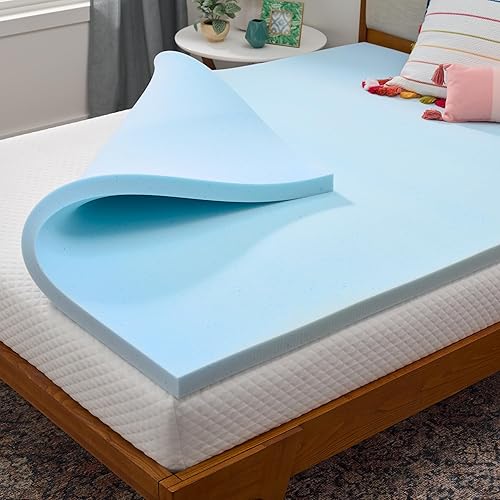
Unlock the Secret to Restorative Sleep and Wake Up Refreshed Every Morning
Your brain processes 11 million bits of information per second, but when you’re tossing and turning at 2 AM, those racing thoughts feel impossible to quiet. The truth is, quality sleep isn’t a luxury—it’s a biological necessity that affects every aspect of your health, from your immune system to your emotional well-being.
If you’re ready to transform your nights and revolutionize your days, these 10 scientifically-backed habits will help you achieve the deep, restorative sleep your body craves.
1. Create a Consistent Sleep Schedule
Your body’s internal clock, known as the circadian rhythm, thrives on predictability. Going to bed and waking up at the same time every day—even on weekends—helps regulate your natural sleep-wake cycle. This consistency makes it easier to fall asleep and wake up naturally, reducing the need for that jarring alarm clock.
Start by choosing a bedtime that allows for 7-9 hours of sleep and stick to it religiously for at least two weeks. Your body will begin to anticipate sleep at the right time, making the transition to slumber much smoother.
2. Design the Perfect Sleep Environment
Your bedroom should be a sanctuary designed specifically for rest. The ideal sleep environment is cool (around 65-68°F), dark, and quiet. Even small amounts of light can disrupt your body’s production of melatonin, the hormone responsible for sleepiness.
Amazon Sleep Environment Essentials:
Blackout Curtains
The Sleepout Portable Blackout Curtain uses patented suction technology to create complete darkness in any room within seconds
February 13, 2026 22:33
White Noise Machine
Top-rated options like the Yogasleep Hushh provide consistent, soothing sounds that mask disruptive environmental noise
February 13, 2026 22:33
Cooling Mattress Topper
Temperature-regulating materials help maintain optimal body temperature throughout the night
February 13, 2026 22:33
3. Invest in Quality Sleep Accessories
The right pillow and mattress can make the difference between restless nights and restorative sleep. Your pillow should support your neck’s natural curve while keeping your spine aligned, regardless of your sleeping position.
Recommended Amazon Sleep Products:
Adjustable Pillows
The Coop Sleep Goods pillow features removable gel-infused memory foam and microfiber fill that can be customized to your exact preference
February 13, 2026 22:33
Memory Foam Options
For those who need consistent support without excessive thickness, thin memory foam pillows provide contouring without elevating the neck too high
February 13, 2026 22:33
Position-Specific Pillows
Side sleepers benefit from medium to firm, high-loft pillows, while stomach sleepers need flatter, low-loft options
4. Establish a Relaxing Bedtime Routine
Your pre-sleep routine signals to your brain that it’s time to wind down. This ritual should begin 30-60 minutes before your intended bedtime and include calming activities that help transition your mind from the day’s stresses to peaceful rest.
Consider activities like gentle stretching, reading, meditation, or listening to calming music. The key is consistency—performing the same activities in the same order each night creates powerful sleep cues for your brain.
5. Limit Screen Time Before Bed
The blue light emitted by smartphones, tablets, computers, and televisions can significantly interfere with your body’s natural sleep preparation. This light suppresses melatonin production and can delay sleep onset by up to an hour.
Implement a digital sunset by avoiding screens for at least one hour before bedtime. If you must use devices, consider blue light filtering glasses or enable night mode settings on your devices.
6. Watch Your Diet and Timing
What and when you eat can significantly impact your sleep quality. Large meals, spicy foods, and excessive fluids close to bedtime can cause discomfort and frequent nighttime awakenings. Caffeine can remain in your system for 6-8 hours, so avoid coffee, tea, and chocolate after 2 PM.
Instead, if you’re hungry before bed, opt for a light snack containing tryptophan (like turkey or milk) or complex carbohydrates that can actually promote sleepiness.
7. Get Regular Exercise (But Time It Right)
Regular physical activity is one of the most effective ways to improve sleep quality. Exercise helps reduce stress, tire your body, and regulate your circadian rhythm. However, timing matters—vigorous exercise within three hours of bedtime can be stimulating and make it harder to fall asleep.
Aim for at least 30 minutes of moderate exercise most days of the week, preferably in the morning or afternoon. Even gentle activities like yoga or walking can significantly improve sleep quality.
8. Manage Stress and Racing Thoughts
Stress and anxiety are among the most common culprits behind sleep difficulties. Racing thoughts about tomorrow’s responsibilities or today’s challenges can keep your mind active when it should be winding down.
Develop stress-management techniques such as deep breathing exercises, progressive muscle relaxation, or journaling. Keep a notepad by your bed to jot down worries or tomorrow’s tasks, helping clear your mind for sleep.
9. Use Strategic Napping
While napping can be beneficial, poor nap timing or duration can interfere with nighttime sleep. If you must nap, keep it short (20-30 minutes) and avoid napping after 3 PM. This prevents naps from reducing your sleep drive and making it harder to fall asleep at bedtime.
Power naps can be refreshing without causing grogginess, but longer naps can leave you feeling disoriented and disrupt your nighttime sleep schedule.
10. Create Comfortable Sleep Conditions
Beyond temperature and light, consider other factors that contribute to comfort. Weighted blankets, which typically weigh 10% of your body weight, can provide a calming, cocoon-like sensation that reduces anxiety and promotes deeper sleep. Many users report feeling like they’re “sleeping in a coma-like state” with “the soundest and best sleep I have ever had in my life” when using weighted blankets.
Additional Amazon Sleep Enhancers:
- Weighted Blankets: These provide gentle, even pressure that can reduce anxiety and improve sleep quality
- Humidifiers: Maintaining proper humidity levels (30-50%) can prevent dry air from disrupting sleep
- Essential Oil Diffusers: Lavender and chamomile scents have been shown to promote relaxation and sleepiness
The Science Behind Better Sleep
Quality sleep isn’t just about feeling rested—it’s essential for physical health, mental clarity, and emotional stability. During sleep, your body repairs tissues, consolidates memories, and releases important hormones. Poor sleep has been linked to weakened immune function, weight gain, decreased cognitive performance, and increased risk of chronic diseases.
By implementing these 10 habits consistently, you’re not just improving your nights—you’re investing in your overall health and quality of life. Sleep experts recommend “pitch black” conditions, temperatures “around 65°F,” and white noise machines or ear plugs to block disruptive sounds for optimal sleep conditions.
Your Journey to Better Sleep Starts Tonight
Transforming your sleep doesn’t require a complete overnight overhaul. Start with one or two habits that resonate most with you, and gradually incorporate others as they become routine. Remember, it typically takes 2-4 weeks to establish new sleep patterns, so be patient with yourself as you build these life-changing habits.
Sweet dreams await those who prioritize their sleep health. Your future well-rested self will thank you for the investment you make in quality sleep tonight.
Ready to upgrade your sleep setup? The products mentioned in this article have been selected based on expert recommendations and user reviews to help you create the perfect sleep environment for restorative rest.




